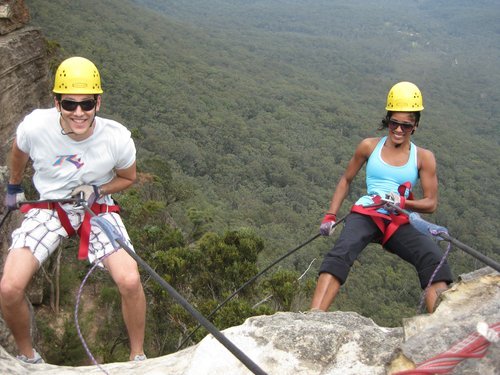BLOG
Neurosweat
Releasing self-judgment to perform better
How do we create a more harmonious relationship between Self 1 and Self 2? The first step is to practice non-judgment, particularly as directed to yourself. A judgmental thought is one that attaches a valence, such as positive or negative, to an event. The act of committing this thought takes away from the experience itself. It prevents us from experiencing the event as it is. How does that relate to Self 1 and Self 2? Well, a single judgmental thought can open Pandora's box. It’s the gateway for an entire sequence of thoughts, which quickly pulls us out of the present moment and our chance of pure, uninhibited performance. Let’s break down what happens when a judgmental thought enters your mind.
Introducing Self 1 and Self 2
In an effort to drop into peak performance more frequently, it’s helpful to have a broad understanding of what’s going on in the mind when we’re not in flow.
In his book, The Inner Game of Tennis, Timothy Gallwey introduces the reader to Self 1 and Self 2. Self 1 can be thought of as the ego-mind. It’s always thinking, always commenting, and incredibly judgmental. Self 2 is the body. It includes the unconscious mind and the nervous system. Self 1 is the “teller” and Self 2 is the “doer”. But, Self 2 is not subservient. It is actually very wise; it just doesn’t have a chance to do its thing because, well, Self 1 nags . . . a lot.
Letting emotions move through you
Self-trust of one’s body and skills is a huge component of mental strength, but how do we train it? There are many training tools, but I want to start with something that’s very accessible. It may not seem obvious, but one way to cultivate greater trust in your body is to listen to the language of your emotions, and then let them move you to move through you.
Do this one thing to perform more consistently
If you want to perform well, then you have to pay attention to how you prepare immediately before a performance. If you want to perform well consistently, then you should do the same thing before every performance.
The physiological sigh
This reduction in physiological stress is important because there is likely a relationship between physiological stress and emotional stress, although the exact neuro-mechanism has yet to be determined. When we consider stress management, we can either approach it in a top-down manner (by controlling cognition, which can then trickle down to the body’s stress response) or with a bottom-up approach (by controlling the physiological response, which then affects mental state). The “physiological sigh” is an example of a bottom-up stress management technique that can be used acutely to reduce stress or anxiety.
Does mindfulness make you lazy?
What’s the relationship between mindfulness, motivation, and performance? Here, we explore the findings of an interesting study.
Dealing with imposter phenomenon
Imposter phenomenon is a psychological construct in which we doubt our competency or do not feel deserving of our accomplishments . . . [It] can be debilitating and is certainly one way in which people may get in their own way. It can lead to burnout, anxiety, or depression - and is also linked to a decrease in risk-taking behavior, which isn’t always a good thing in business or athletics . . . Luckily, there are several proven strategies for overcoming imposter phenomenon.
A mindful strategy for facing setbacks
Moving towards a goal seldom follows a straight line. There are obstacles and detours that may force us to question our ability to get to the finish line. If the setbacks keep coming and the path feels increasingly difficult, we may even consider dropping the goal entirely.
This particular circumstance, when we’re weighing the possibility of either pressing on or giving up, is called an “action crisis”. We are conflicted between our desire to accomplish this goal and our readiness for the uncomfortable challenges to be over.
Creating your legacy
I strongly believe that each of us has a responsibility to make this place a little bit better. It’s not about dramatically changing the world. It’s not about beating a record or creating a fortune. Sure, those objectives can be part of it. But, I encourage you to focus on how you make other people feel. Does your story inspire? Do you challenge people to think? Do you help people feel seen? Those footprints will leave a much deeper impression in the ground.
7 questions to ask yourself every night
The best of the best are committed to excellence every single day. They rise in the morning with intention, divide their day into deliberate, task-focused segments, and close each day with reflection. Wash, rinse, repeat . . . The reflection period is critical. It accelerates growth because it creates space for small adjustments in how you show up the next day. Reflection is an opportunity for feedback - the kind you don’t have to wait for because it arises from within. If you don’t take the time to assess your performance on a regular basis, then it’ll be difficult to course correct later.
The importance of unfocusing
There’s a huge emphasis placed on focus and an under appreciation for the value of unfocusing. As is the case with almost everything in life, balance is key. Our brain functions best when it alternates between focused states and unfocused states, and there’s a way to do that effectively.
Focus your gaze and your mind will follow
Our lives flow directly out of how we view the world. So, it behooves us to pay attention to what we choose to focus on. When we ruminate over problems and see every challenge as a roadblock instead of an opportunity, then our brain filters out positive experiences and selectively attends to negative or difficult stimuli. Where we direct our gaze communicates to our brain which type of information is salient and which type can be ignored. In a very real sense, we create our reality by resting our gaze in a particular direction.
How mantras promote a quiet mind
The use of affirmations or mantras is universal, spanning across cultures and implemented across all sectors of society. Athletes often use them to hone their focus, increase their confidence, or dial-up their intensity. Diana Nyad relied on the mantra “find a way” during her record-breaking 112-mile swim from Florida to Cuba. After 4 unsuccessful attempts spanning over 30 years, she decided to implement this mantra while training for her final attempt. Of course, it wasn’t those 3 words alone that brought her feet to the sandy shore, but they certainly propelled her through the brutal challenges she encountered at sea.
Change begins with awareness
Change requires awareness. You have approximately 70-80,000 thoughts a day, but how many of those thoughts are you actually aware of? How many of those thoughts have intention behind them? How many of those thoughts are repetitive (answer: most of them)? Awareness takes a lot of work, but you are fully capable of cultivating it. It just takes practice.
Once a dancer, always a dancer
One of the greatest privileges of my career is witnessing an athlete’s arc over time and how they manage the transitions inherent to any athletic career. Whether the transition is from high school to college, from good to great, or from playing to retiring, it always contains a mixture of resistance, lessons, and opportunities for growth.
My word for 2022
Do you have a word for 2022? Or have you heard of people setting a word for their year? I abandoned resolutions years ago and hopped on the ‘word’ bandwagon instead - and I’m much happier here. My word of the year serves as my North Star, a point of focus around which I can orient my life. It’s a quality that I want to manifest, exude, and experience more of - and aligning my actions with it contributes to my growth.
The value of a pre-performance routine
Anyone who performs consistently well at a high level implements a pre-performance routine. The stakes are just too high to leave the mental component of performance up to chance. So, let’s borrow a page from their playbook and create our own pre-performance routines.
Finding center with mental anchors
We’ve all been caught up in life’s chaos (heck, this probably happens on the daily), so we intimately know how this feels. Our mind is scattered, all of our mental tabs are open, and we’re buzzing at an unsustainable speed. Although we may feel like we’re spinning out of control, we actually have quite a bit of agency over each moment. Instead of continuously getting carried away by the current of life and all its demands, we have ample opportunity to come back to center - that place of permanent inner stillness that allows us to reconnect to our purpose, clarify our path, and execute efficient and effective action steps. Mental anchors are short practices that quiet the mind, help us regain control, and allow us to focus on what’s important now.
Don’t just stand there, bust a move: The art of waiting
Waiting is inherent to living. Unfortunately, in this age of instant gratification, our patience is often tested. If you’re waiting anxiously and complaining about the process, then you’re missing out on the richness of those in-between moments. Plus, waiting fortifies the mind - and isn’t that partly why we’re here? To gain some mental strength and grow as humans? Let’s explore the benefit of waiting on mental strength and the art of waiting well.
Building resilience through movement
The good news is that resilience is not a trait that you either have or you don’t. It’s a mental skill that can be strengthened through practice and over time. Let’s look at the resilient brain and then explore how it can be fortified by doing something that most of us love - moving.




















